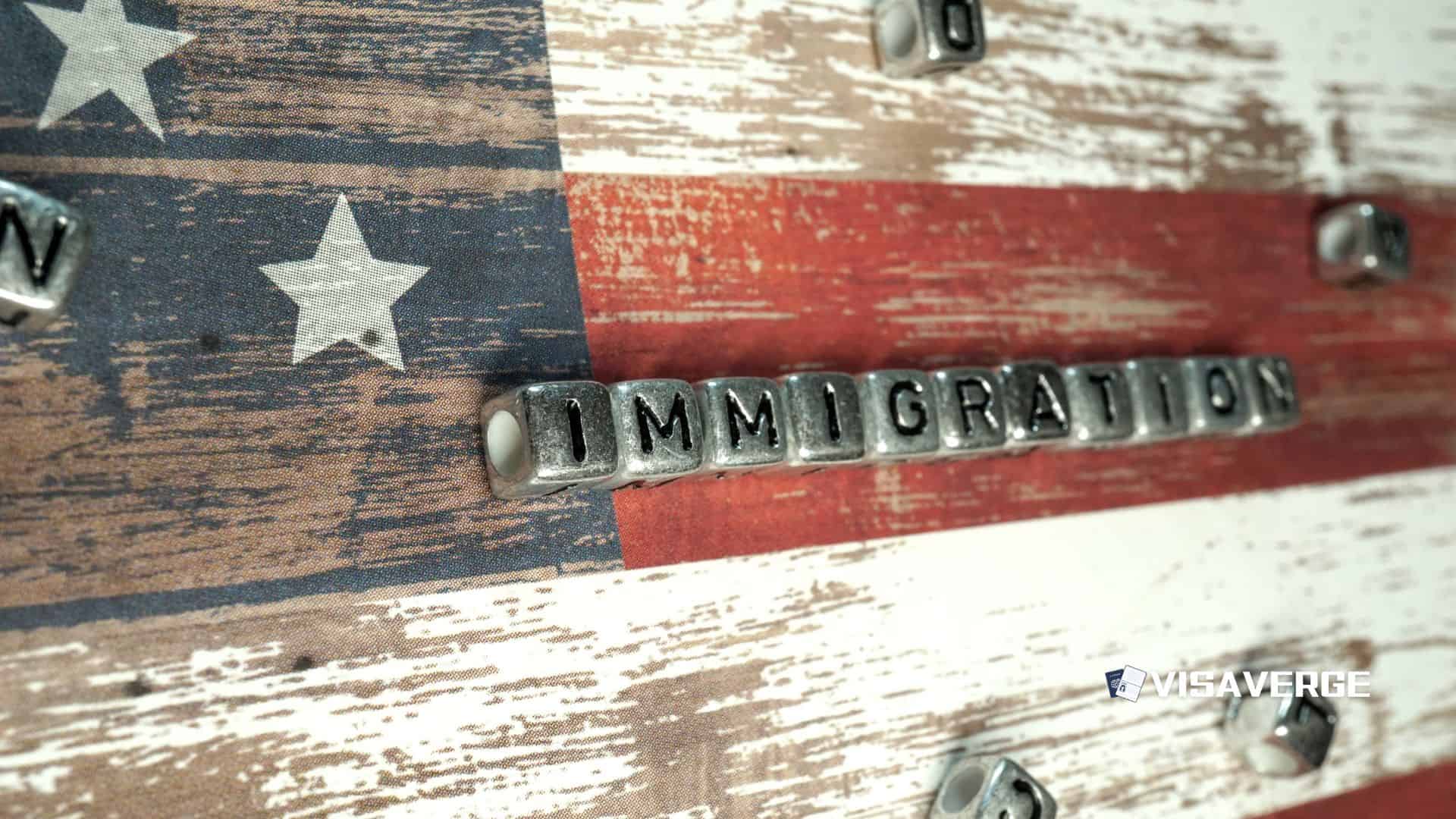The U.S. Equal Employment Opportunity Commission has issued a sharp warning to employers that job ads and hiring practices that favor workers on H-1B visas over equally qualified U.S. citizens and other workers may break federal law. In guidance released in November 2025, the agency said that phrases such as “H-1B preferred” or “H-1B only” in recruitment can be treated as evidence of unlawful national origin discrimination under Title VII of the Civil Rights Act.
EEOC leadership message and scope of the problem

EEOC Chair Andrea Lucas said bias against American workers — when employers show preference for foreign nationals with certain visa statuses — is not a rare problem limited to a few sectors. Instead, she described it as widespread across multiple industries, including technology, consulting, and outsourcing.
The guidance makes clear that employers cannot defend these practices by citing:
– business pressures,
– customer requests, or
– assumptions that foreign workers on H-1B visas are more productive, more loyal, or easier to manage.
Legal foundation: Title VII and national origin discrimination
The agency’s technical assistance documents explain that Title VII of the Civil Rights Act bans discrimination based on national origin, which includes treating workers differently because they are, or are not, from a certain country or region.
When employers write “H-1B preferred” in an advertisement, the EEOC warns they may, in practice, be signaling a preference for workers from specific countries that send large numbers of H-1B professionals, while excluding many American workers and others who do not hold that status.
Key point: Using visa status as a hiring filter can function the same as a direct national origin preference under Title VII.
Examples of conduct that may trigger legal trouble
The guidance gives concrete examples of conduct that can lead to enforcement action:
- A staffing company that routinely posts openings saying “H-1B only,” then rejects U.S. citizen applicants even when they have the same skills and experience as the visa holders.
- A tech firm that lays off American workers first while keeping H-1B employees in similar roles, arguing the company has already invested in sponsoring their visas.
According to the EEOC, both examples represent disparate treatment that may violate federal law.
Harassment and retaliation protections
The commission highlights that harassment and retaliation are part of the same problem. Workers who complain that their company is favoring H-1B visa holders, or who oppose a pattern of “H-1B preferred” hiring, are protected when they raise those concerns.
If an employer reduces hours, demotes, or fires employees because they spoke up, that reaction can count as illegal retaliation under Title VII, even if the original discrimination claim is still being investigated.
Enforcement context and recent responses
This renewed focus comes as public debate over foreign workers intensifies. Federal officials have opened investigations into major technology companies and outsourcing firms accused of building teams overwhelmingly made up of H-1B workers, while sidelining American staff.
VisaVerge.com reports that recent enforcement actions have already led several large employers to:
– quietly remove “H-1B preferred” language from job ads, and
– overhaul recruitment practices designed around hiring foreign nationals first.
Related policy changes affecting H-1B program
The EEOC’s stance is being rolled out alongside separate policy moves aimed at the H-1B program itself. New rules include a $100,000 fee for certain new H-1B visa petitions filed after September 21, 2025 — a steep cost intended to discourage heavy, routine use of the category and to protect wages and job chances for U.S. workers.
While that fee is managed by immigration authorities rather than the EEOC, both efforts share the stated goal of reducing abuses tied to H-1B visas and strengthening protections for American employees.
Employer perspective and common practices
Employer groups say privately that many companies never meant to discriminate when they wrote ads calling for H-1B workers. Recruiters often used the phrase as shorthand for “willing to sponsor visas,” or to respond to client demands for workers who could be placed on long-term contracts.
But the EEOC now makes clear that using visa status as a filter, instead of focusing on skills and legal work authorization, can have the same effect as a direct national origin preference, and therefore falls under Title VII’s ban.
What this means for workers
For workers, the message is that federal law does not allow them to be pushed aside just because they are U.S. citizens, permanent residents, refugees, or hold other statuses that differ from H-1B visas.
- A qualified American engineer who sees a job listing that reads “H-1B preferred” may now have stronger backing if they are rejected and later discover the company hired a less qualified H-1B candidate.
- In such cases, the wording of the advertisement itself can serve as evidence in an EEOC investigation or lawsuit.
Employer defenses the EEOC rejects
According to the EEOC, several common defenses are not legally sufficient:
– Customer preference is not a defense. If a client asks a staffing agency for only H-1B consultants based on stereotypes (for example, about work ethic or turnover), the agency still must follow federal anti-discrimination rules.
– Cost savings are not a defense. If a company argues that H-1B workers accept lower pay, lower pay cannot legally justify treating American workers worse because of their national origin or status.
Compliance steps the EEOC recommends (and legal advice given to employers)
The commission urges companies to:
– review existing job postings,
– examine recruitment channels, and
– update internal policies with this guidance in mind.
Lawyers advising employers say they are telling clients to:
1. Strip out any “H-1B preferred” language from job ads.
2. Train hiring managers to focus on objective job requirements (degrees, licenses, concrete technical skills).
3. Audit past hiring decisions to determine whether Americans were consistently passed over when H-1B candidates were in the mix.
Immediately audit current job postings and remove any ‘H-1B preferred’ or ‘H-1B only’ phrases; replace with explicit skills, qualifications, and work authorization requirements.
Impact on worker confidence and potential filings
Worker advocates hope the guidance will encourage applicants to come forward. Many U.S. workers have long suspected that certain roles were effectively reserved for H-1B staff supplied by large labor brokers but lacked clear regulatory signals.
With the EEOC placing H-1B-based preferences in the same category as direct national origin bias, those workers may feel better supported if they decide to file a charge.
Protections for foreign nationals and other authorized workers
Federal officials point out that the law protects foreign nationals as well. An employer that says “U.S. citizens only” in a way that excludes lawful permanent residents and other authorized workers can also face action.
The central rule, the EEOC stresses, is that hiring and firing decisions must not be based on where someone comes from or what kind of visa they hold, so long as they are legally authorized to work.
If you feel targeted, remember EEOC protections cover citizens and authorized noncitizens; file a charge via EEOC.gov and keep records of ads and hiring decisions for investigations.
Important: Both U.S. citizens and authorized noncitizen workers are protected from employment decisions based on national origin or visa status.
Where to find the guidance and how to file a charge
The EEOC’s national origin guidance, including the section on H-1B visas and hiring preferences, is available on its official website, which also explains how to file a charge of discrimination and what to expect during an investigation.
More general information on national origin discrimination is provided at EEOC.gov, where workers and employers can read about their rights and duties under Title VII of the Civil Rights Act and related laws.
In November 2025 the EEOC warned employers that recruitment language like “H-1B preferred” may amount to unlawful national origin discrimination under Title VII. The guidance highlights examples—excluding qualified U.S. applicants, retaining H-1B workers over citizens, and retaliation against complainants—and urges employers to remove visa-status filters, train staff, and audit hiring. Concurrent immigration policy adds a $100,000 fee for certain H-1B petitions filed after Sept. 21, 2025, aiming to reduce program abuses.













